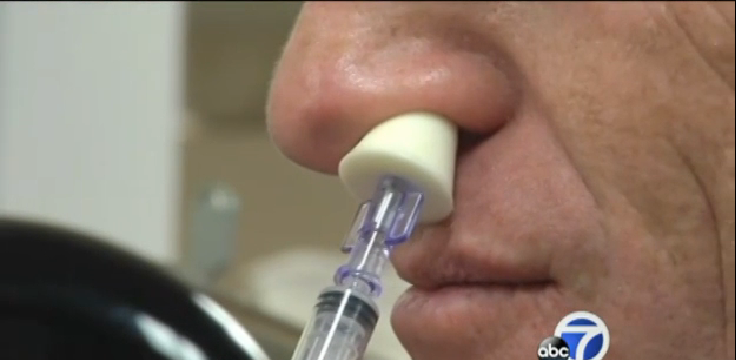Nasal Spray Marks Latest Treatment For Snake Bites, Called ‘New Trick For An Old Drug’

In a breakthrough that could save tens of thousands of lives, Bay Area doctors have developed a way to administer a medicine via a nasal spray that is expected to revolutionize snake bite treatment.
In some developing countries, the threat of dying from a snake bite equals that of dying from acquired immune deficiency syndrome (AIDS). Nearly five million people get bitten by a snake each year, with 100,000 of those bites turning fatal. In one trial, research from the University of California at San Francisco (UCSF), in collaboration with the California Academy of Sciences, showed success reversing the effects of paralysis through the use of the nasal spray.
The medicine used in the spray typically enters a patient's bloodstream through intravenous injection (IV), although the doctors are hopeful that nasal sprays will be quicker, cheaper, and equally as effective.
"Drugs are absorbed through the nose very quickly," said Dr. Matt Lewin of UCSF, calling snake bites the "most neglected of neglected tropical diseases."
When a venomous snake bites, it sends a paralyzing neurotoxin coursing through the victim's bloodstream. The medicine used to reverse the paralysis is called neostigmine. One of the problems that Lewin and his team saw with receiving the drug was that it took too long and required access to a hospital. In many underdeveloped, or developing, countries, a portable nasal spray would work much better.
Emergency drug kits tended to have a lot of needles, he said, making it very difficult for the untrained person to administer the drug.
Lewin's team solicited a volunteer who would be willing to get paralyzed under controlled conditions in order to test the spray's efficacy. To their delight, the drug worked wonders.
"We didn't even need to do the measurements, the change was so dramatic and so obvious," retired State Department Dr. Lance Montauk said.
Lewin gave a subsequent talk about the findings at a medical convention, he was so excited.
At the convention was Dr. Stephen Samuel, who's performed much of his research in India and began collaboration with Lewin on the global potential of his nasal spray. Samuel debuted the spray in India with great success, relaying the findings to Lewin via e-mail and opening countless doors into the possibility of saving thousands of lives.
The spray is still in an experimental stage, despite the patient in India making a full recovery. Doctors have yet to conclude which snakes' venom the spray shows the most effectiveness, as not all bites can be treated with the medicine.
Samuel's findings were enough for Lewin, however.
"I got an e-mail that said - we've done it. We've had a complete reversal," Lewin said, "and so I was practically in tears."
Published by Medicaldaily.com



























